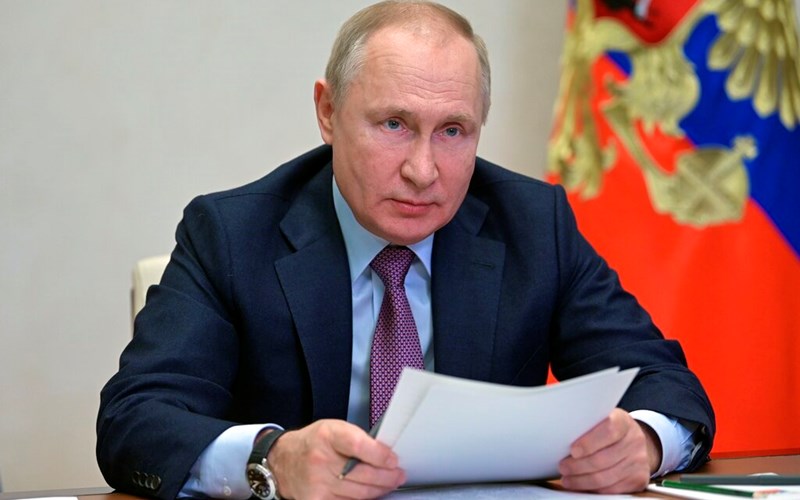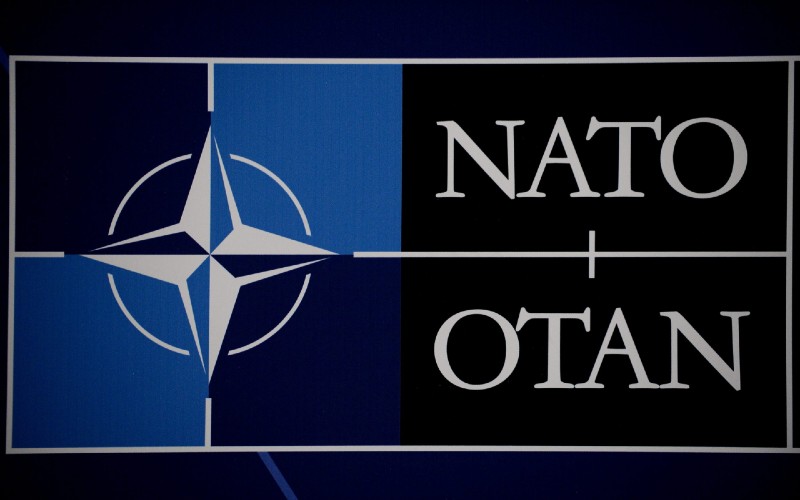Vladimir Putin announced over the weekend he had ordered Russia’s defense officials to put nuclear forces in a “special regime of combat duty,” and he blamed “aggressive statements” of Western leaders who belong to NATO for doing so.
“Western countries aren’t only taking unfriendly actions against our country in the economic sphere,” Putin said, referring to crippling sanctions, “but top officials from leading NATO members made aggressive statements regarding our country.”
Even before Putin ratcheted up the tension by introducing the word “nuclear” over the weekend, he had warned NATO that threatening Russia would “entail consequences that you have never encountered in your history.”
 That warning from Russia’s president came after European countries publicly announced they are sending anti-tank weapons and anti-aircraft weapons to Ukraine.
That warning from Russia’s president came after European countries publicly announced they are sending anti-tank weapons and anti-aircraft weapons to Ukraine.
A spokesman for the European Union announced fighter aircraft will be sent there, too.
In summary, one week after Russian tanks and helicopters began advancing toward Kiev, the world is witnessing the violent conflict spin up, not down, and now Moscow is threatening to use cataclysmic weapons in which nobody is left alive to declare a battlefield victory.
Belarus approves Russian nukes
In a related move, Russia's ally Belarus will now accept nuclear weapons on the NATO-bordering nation, Defense News reported. The country's Moscow-pleasing president, Alexander Lukaeshenko, announced a weekend ballot referendum concluded with 65% of voters approving a change to the constitution that currently calls the nation a "nuclear-free zone."
Belarus borders Poland to the west, and it borders Lithuania and Latvia to the north.
Russia used Belarus to attack Ukraine from the north, and on Tuesday Ukraine military officials said Belarus troops crossed the border to attack them in the Chernihiv region north of Kiev.
After announcing the change to the constitution, Lukashenko warned NATO and the West that Russia "is being pushed towards a third world war" because of crippling sanctions against Russia's banks and energy sector.
Those sanctions are causing a "financial meltdown," CNN reported.
Expecting the economic backlash, Putin has prepared for it for years by building up $630 billion in international reserves and gold, CNN said, but the Russian ruble lost 25% of its value in days and the Russian central bank doubled interest rates to 20%. Russian citizens are lining up to withdraw their deposits, too.
"We should be very reserved and steer clear of it," Lukashenko said of a future war, "because nuclear war is the end of everything."
Maginnis: Putin approves 'first use'
Bob Maginnis, a national defense analyst at the Family Research Council, tells AFN he studied Russia’s views about defense strategy and nuclear war for a 2018 book he wrote about the West’s dual threat from Russia and China. In the book, Maginnis points out Russia under Putin imagined a limited nuclear strike against NATO in a 2017 war game exercise.
 "The Russian doctrine,” he says, “is no longer denying first use: allowing tactical nuclear weapons to be used when their conventional forces are not making the necessary headway.”
"The Russian doctrine,” he says, “is no longer denying first use: allowing tactical nuclear weapons to be used when their conventional forces are not making the necessary headway.”
Russia’s military doctrine, Maginnis wrote just four years ago, states Moscow can justify the use of nuclear weapons if it concludes the “very existence” of the country is in jeopardy not just from nuclear weapons launched against it by NATO but also from “aggression” against the Russian Federation from conventional weapons, too.
From their viewpoint in Moscow, Putin and his generals are watching European leaders announce they are sending Ukraine anti-aircraft Stinger missiles, anti-tank weapons, machine guns, fuel, grenade launchers, body armor, field rations, and helmets.

The countries contributing those materials include Germany, Sweden, Denmark, Belgium, and Hungary, news website Axios reported.
After the weekend warning from Putin, the West has not matched his provocative threat with counter-threats.
 “We think provocative rhetoric like this is dangerous, adds to the risk of miscalculation, should be avoided, and we’ll not indulge in it," White House press secretary Jen Psaki told reporters Monday.
“We think provocative rhetoric like this is dangerous, adds to the risk of miscalculation, should be avoided, and we’ll not indulge in it," White House press secretary Jen Psaki told reporters Monday.
Regarding the Ukrainian fight against Russia, Maginnis says the country has proven to be brave and courageous against an outnumbered enemy but there is the issue of the weapons being delivered.
“They can only fight as long as they have weapons and personnel,” he says, “and NATO providing weapons, of course, creates a problem for the West in that it is aiding and abetting an enemy of the Russian people."
Editor's note: This story has been updated with news of the Belarus referendum on nuclear weapons.







